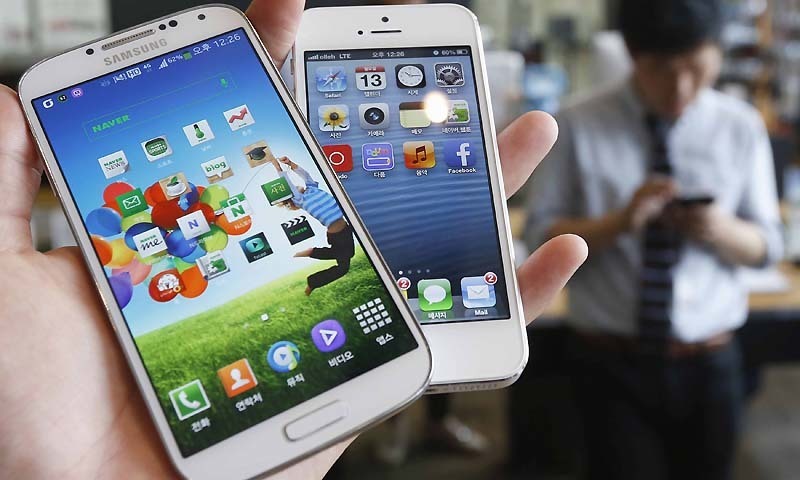Apple, Samsung fined millions by Italy for 'planned obsolescence' of phones

Italy's competition authority on Wednesday said it was fining Apple and Samsung 10 and five million euros ($11.5 and $5.7 million) respectively for the so-called “planned obsolescence” of their smartphones.
The ruling is believed to be the first against the manufacturers following accusations worldwide that they encourage operating system updates for older phones which slow them down, thereby encouraging the purchase of new phones.
Two “complex investigations” by the anti-trust authority AGCM revealed that Apple and Samsung implemented unfair commercial practices, a statement said.
“The two companies have induced consumers to install software updates that are not adequately supported by their devices, without adequately informing them, nor providing them with an effective way to recover the full functionality of their devices,” the AGCM said.
Operating system updates “caused serious malfunctions and significantly reduced their performance, in this way speeding up their replacement with more recent products.”
Samsung “insistently suggested” to owners of its 2014 Note 4 phone to install a new version of Google's Android operating system intended for the more recent Note 7, the ACGM said.
But that was “without informing them of the serious malfunctions that the new firmware could cause due to greater stress of device's hardware and asking a high repair cost for out-of-warranty repairs connected to such malfunctions”.
Likewise, Apple “insistently suggested” to iPhone 6 owners to install an operating system designed for the iPhone 7, “without warning consumers that its installation could reduce the speed of execution and functionality of devices”.
'No support'
Apple “did not offer any specific support measures for iPhones that had experienced such operating problems and were no longer covered by the legal warranty; only in December 2017 Apple provided for the possibility to replace batteries at a discounted price”.
Apple was also found not to have told customers about “essential” characteristics of its phones' lithium batteries, “such as their average duration and deterioration factors, nor about the correct procedures to maintain, verify and replace batteries in order to preserve full functionality of devices”.
Both companies were fined the maximum possible, Apple paying double Samsung's five-million-euro fine because of its two contested practices.
The Italian anti-trust authority opened its investigation in January following customer complaints around the same time as a similar probe in France.
The US company was forced to admit last year that it intentionally slowed down older models of its iPhones over time, sparking concerns it was unfairly nudging consumers to upgrade.
At first, Apple had denied it intentionally shortened the life on any of its products. It said it slowed models to extend the performance of the phone — which uses less power when running at slower speeds — and to prevent unexpected shutdowns.
The California-based group also faces a class-action suit in the United States and a slew of lawsuits in Russia.
Samsung in January said that it “does not provide the software updates to reduce the product performance over the life cycle of the device, according to reports”. It pledged to cooperate with the Italian authorities.
The companies will be required to publish an “amending declaration” on their Italian websites with a link to the AGCM's ruling.
There was no immediate reaction to the Italian decision from Apple or Samsung.
